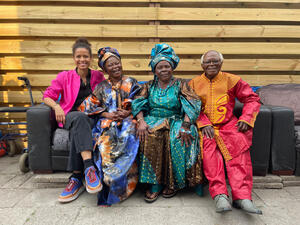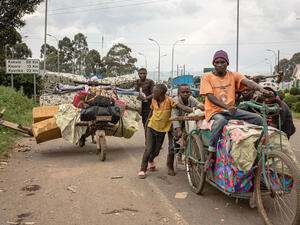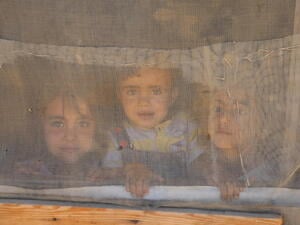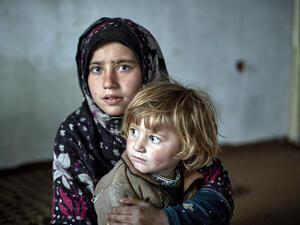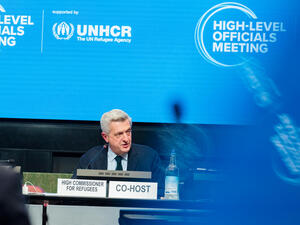Consultations on refugee resettlement
Consultations on refugee resettlement
UNHCR is organizing today its annual round of consultations with governments, non-governmental organizations and the International Organisation for Migration (IOM) on refugee resettlement. Resettlement is one of UNHCR's three long-term solutions to refugee problems. It involves the transfer to a new country of asylum of refugees who cannot remain in their first country of refuge, and who have no reasonable prospects of an early return home. In emergency situations, where the protection of an individual refugee cannot be assured in the country where he or she initially sought asylum, resettlement may be a life-saving measure.
There is a tendency today to focus on repatriation as the most desirable solution to any refugee problem, but in many instances, permanent resettlement may offer the only prospect for a refugee to make a new start in safety.
"There is a tendency today to focus on repatriation as the most desirable solution to any refugee problem, but in many instances, permanent resettlement may offer the only prospect for a refugee to make a new start in safety"
The participants at the meeting include representatives of the countries which offer UNHCR quota for the resettlement of refugees (Australia, Canada, Denmark, Finland, Netherlands, New Zealand, Norway, Sweden, and the USA), some newcomers to the resettlement effort, the IOM and NGOs. The traditional countries of resettlement - in Europe, North America and Oceania - are also countries which admit spontaneously arriving asylum seekers and are among UNHCR's major donors. The newcomers to the resettlement effort this year, who are also present at the consultations, include two African countries, Burkina Faso and Benin, which have offered to take in African refugees, and Chile, which has recently admitted a group of Croat Serb refugees.
A number of other countries help UNHCR with resettlement on a case-by-case basis.
During the first 5 months of 1999, around 16,500 refugees were resettled under UNHCR auspices, as compared with a total of 21,300 for all of 1998. The role of non-governmental organizations (NGOs) is vital in many countries, where the NGOs are responsible for the reception of the refugees and for helping them to settle in their new environment.
Refugees from Africa and the Middle East account for the majority of refugees currently in need of resettlement, but resettlement of certain groups of refugees from the former Yugoslavia is continuing as well.
While UNHCR is appealing to more countries to join the resettlement effort, there is a particular need for places which can be used for emergency resettlement. This means setting up mechanisms whereby governments are able to decide within a matter of days whether an individual refugee who is in jeopardy elsewhere, can be admitted for resettlement.


